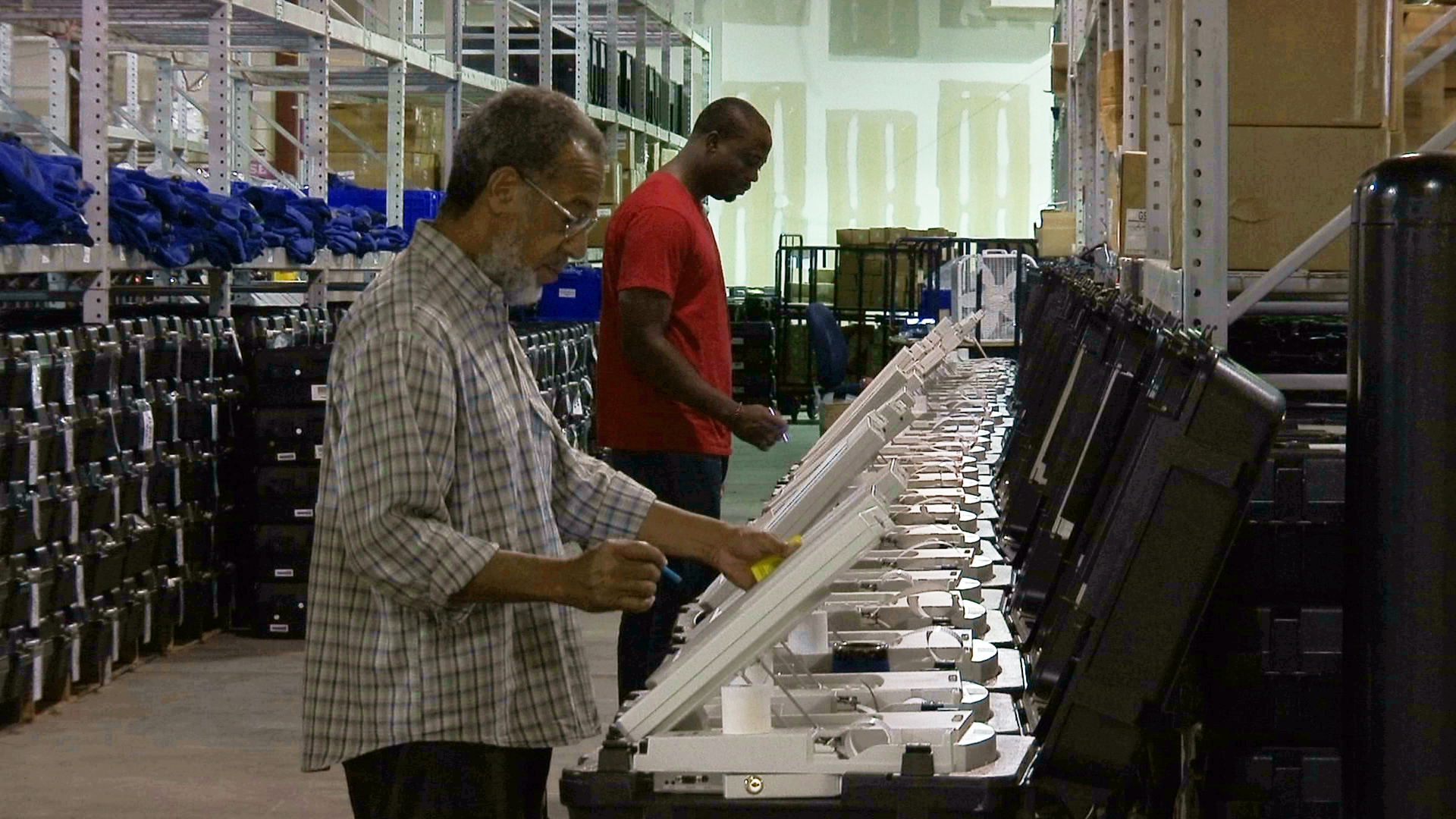Georgia is in line for more than $10 million in federal funds to help with election security as part of a spending bill recently passed by Congress, but voters statewide are still set to cast ballots during the 2018 midterms on ageing equipment labeled vulnerable.
The direct-recording electronic (DRE) voting machines used in Georgia since 2002 have no paper trail allowing voters to check their choices are recorded accurately.
Thirteen states still use DRE machines, and Georgia is one of five states were they’re used exclusively.
Cyber security experts, national security officials, and state lawmakers make up a growing crowd saying that leaves elections vulnerable to possible hacking and doubt.
“Probably the biggest risk going into 2018 election is that there will be efforts to discredit the integrity of the election,” said Larry Norden, deputy director of New York University Law School’s Brennan Center for Justice’s Democracy Program.
The estimated cost of fully replacing Georgia’s machines with paper ballots, filled out using a pen or pencil, and then counted with a scanner, is $35 to $40 million dollars, according to the Brennan Center.
Even with the $500,000 Georgia is required to chip in on its own sometime in the next two years, the state is still $20 million short of a complete overhaul.
Norden said Georgia shouldn’t expect more federal money to arrive ahead of the midterms.
Politicians on the right and left are calling for state leadership to do something about the voting machines before the midterms.
“I’m going to be held accountable as an elected official if something goes wrong in the next elections,” said Republican State Sen. Bruce Thompson, the sponsor of a bill that would have moved Georgia to a paper-based voting system by 2020. It died last month in the legislature.
Democratic state Rep. Scott Holcomb said he wants Republican Secretary of State Brian Kemp, a candidate for governor, to make a regulatory move that would phase out the DRE machines, and institute a paper-based system with machines that are already used to count absentee ballots.
“The good thing about our absentee ballots is that they’re done by paper so there’s a technological solution to help count them. But then we have the paper, so if we want to do a hand count, we can do the hand count,” said Holcomb, admitting that opinions vary on whether the move is legally possible.
Republican Sen. Bruce Thompson said the switch could be made through regulation, but said he isn’t sure the idea is realistic.
“I think that could be something that could be done, but we don’t have enough,” of the optical scanners, he said.
Candice Broce with the Secretary of State’s office said the change would require action from the state legislature, which already completed its annual session. While there are currently 27,000 electronic-only machines across the state, Broce said, there are only 1,000 of the scanners used to read paper ballots.
“We are confident in the security of our current voting equipment,” said Broce. “But we must plan for its eventual replacement.”
Sen. Thompson said Secretary of State Kemp, and Gov. Nathan Deal should act ahead of the 2018 midterms, even if it means simply creating a commission to study the issue.
Thompson encourages Georgians to vote, but he said at this point there’s not much he can do to build trust in the current voting machines.
“I’m not even going to try,” said Thompson. “I think it’s disingenuous when we all know what we know.”









